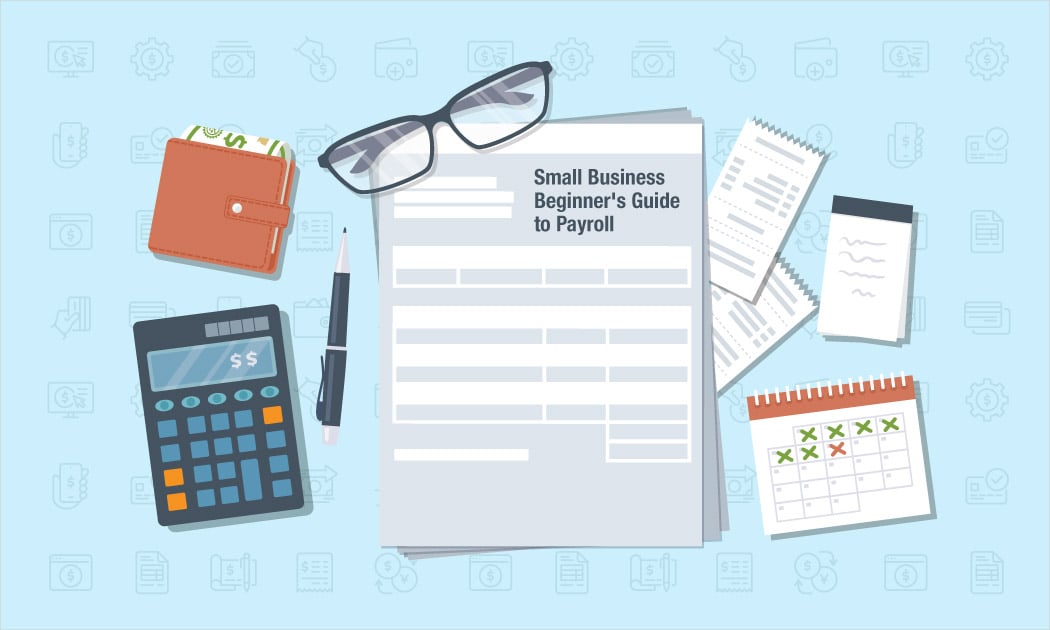The Payroll Blog
News, tips, and advice for small business owners
- Home
- Resources
- Payroll Blog
- Is DIY Payroll Worth It?
Is DIY Payroll Worth It?
On the surface, running payroll may sound like a simple task: you put in your employees’ hours and rate or weekly salary, calculate the amount for that payroll, and pay them, right?

Wrong.
Many small business owners don’t realize that payroll calculation involves more than multiplying hours worked by the hourly rate each pay period. Payroll done right includes compliance with federal and state taxes plus local tax laws and regulations in some cases. If you plan on doing payroll yourself, we have some tips that can help you make the process easier. Alternatively, if you get to the end and realize you want nothing to do with running payroll on your own, we can guide you in what to look for when choosing an online payroll provider.
DIY Payroll 101
If you’re just hiring your first employee, it’s time to get ready for payroll. While you may think it’s ok to start by paying cash under the table until you get a proper payroll system in place, that sadly isn’t the best method and can lead to more headaches down the road. To get started on your DIY payroll journey, there are some key pieces of information you’ll need on hand:
- Employer Identification Number (EIN). Before you can proceed with payroll, you’ll need an EIN. This number shows the IRS how to identify your business. It essentially works the same way as a Social Security number for an individual. Thankfully the IRS makes obtaining an EIN pretty simple with options to apply online.
- Have your employees complete Form W-4. Every employee you hire will need to fill out Form W-4, which lets you, as an employer, know how much you should withhold in taxes from each paycheck. While this sounds like a set it and forget it form, you should provide employees with the opportunity to update it each year so you have their accurate information for tax season and Form W-2 distribution. State withholding forms may also be required.
- Know your payroll schedule. When it comes to payday, there are state pay frequency laws you should be aware of. There are four common payroll schedules: weekly, bi-weekly, semi-monthly, and monthly. Based on where you live and your industry, the decision of which payroll schedule to follow may be determined for you, while other states may give you the option to choose the schedule you want to follow. If you do get a choice, keep in mind the amount of work associated with each option, meaning a weekly payroll schedule will require that you spend more time on payroll, while a monthly payroll schedule will give you the most time to process payroll.
Is DIY Payroll Worth The Cost?
Right now you might be thinking that DIY payroll doesn’t sound too bad, but we haven’t hit taxes yet. Payroll focuses on more than just paying employees their hourly or salaried rate each pay period. Taxes need to be withheld from all paychecks, and that’s where the payroll process can get complicated. Federal, state, and sometimes local taxes must be withheld from each paycheck. Do you understand how to withhold FUTA or SUTA taxes from paychecks? What about the process for unemployment taxes? If you’re starting to sweat, don’t worry. While taxes are overwhelming, you can certainly learn how to calculate payroll taxes to ensure you are remaining compliant and paying employees the correct amount.
The biggest costs associated with DIY payroll may come down to payroll taxes and the time you spend calculating them each payroll. When you don’t withhold the proper amount of taxes, you could end up owing the government later or face expensive fines. Additionally, if employee paychecks are incorrect because of withholding, you will have to find a way to right those wrongs. In terms of the time spent on payroll, there is the actual time it will take to calculate paychecks, but there is also the time you will need to dedicate to researching tax information. Tax codes can change frequently, and new legislation can be implemented many times throughout the year, and if you’re running payroll solo, you’ll have to dedicate time to staying up to date on payroll and taxes to ensure you are staying compliant.
How To Get Help With Payroll
If at this point you’re ready to jump ship on the idea of DIY payroll, there are thankfully some options to consider to get some help.
- Work with a trusted accountant or bookkeeper. If you simply need help managing your books, running payroll and having financial statements prepared, a bookkeeper can be a great asset to your small business. If you find yourself looking for all of that, but also somebody to provide financial advice to you and help you reach your business goals while keeping your best interests in mind, you might consider working with an accountant. Either option could be great for when you’re looking for a little extra help processing payroll.
- Choose an online payroll provider. Today there are many options for online payroll software, but it’s important to note that not all online payroll is created equal, so you’ll want to do your research. Overall, an online payroll provider will be able to help you run payroll efficiently, have the functionality to allow you to follow applicable wage and hour laws, withhold the proper payroll taxes, and pay your employees on time. When making a decision on which company to choose, you should look for things like flexible payroll options in case you need to process a last-minute payroll, customer service that will have your back and be available to help put proper security measures in place to keep your business information safe. For more help making a decision, we put together a guide that has five questions you should be asking yourself while you vet potential payroll providers.
Bottom Line
If you only have one or two employees, then DIY payroll may make the most sense for your small business. But the more employees you have, the more time you’ll be spending on payroll, which can take away from the parts of your business you want to focus on. Thanks to the magic of the internet, there are plenty of resources that you can access that will aid in your DIY payroll journey. And if you decide that’s not the best path for your business, there are several options for online payroll services.
Related Blog Posts
View Our Plans and Pricing
Small Business Is Our Business.
This website contains articles posted for informational and educational value. SurePayroll is not responsible for information contained within any of these materials. Any opinions expressed within materials are not necessarily the opinion of, or supported by, SurePayroll. The information in these materials should not be considered legal or accounting advice, and it should not substitute for legal, accounting, and other professional advice where the facts and circumstances warrant. If you require legal or accounting advice or need other professional assistance, you should always consult your licensed attorney, accountant or other tax professional to discuss your particular facts, circumstances and business needs.



